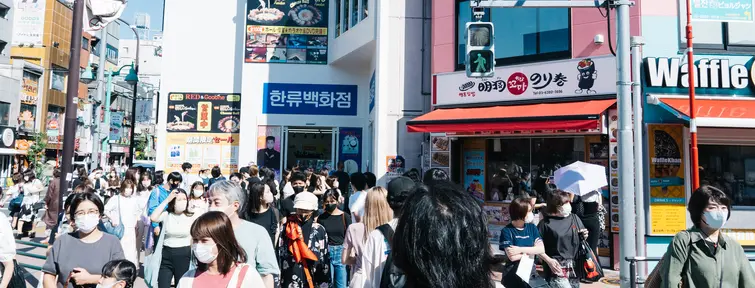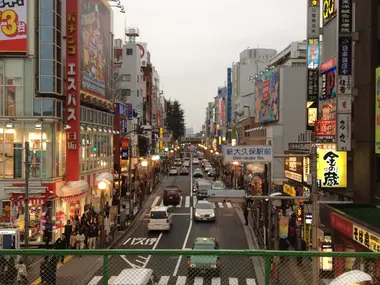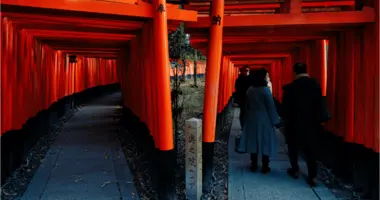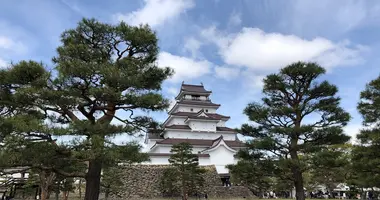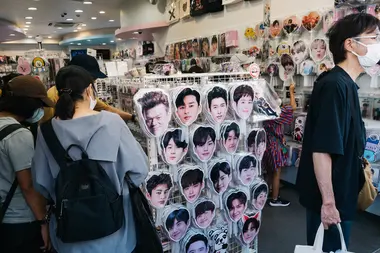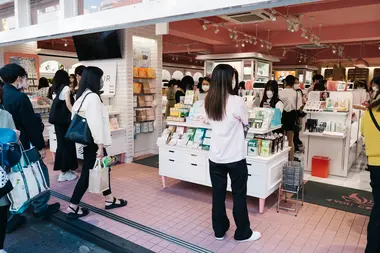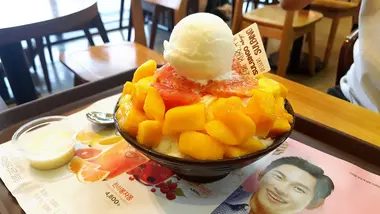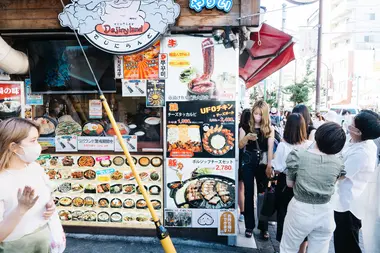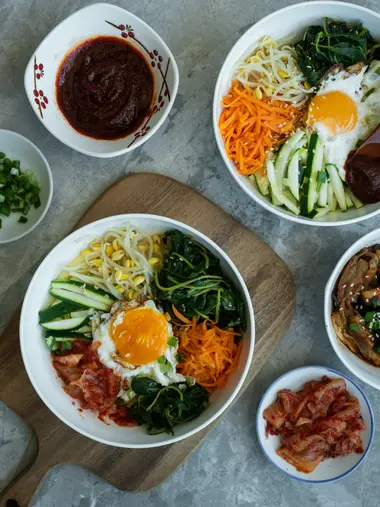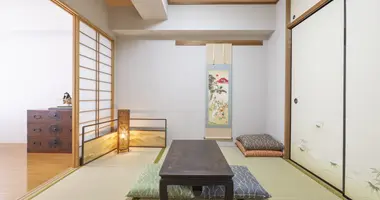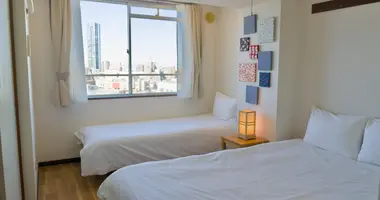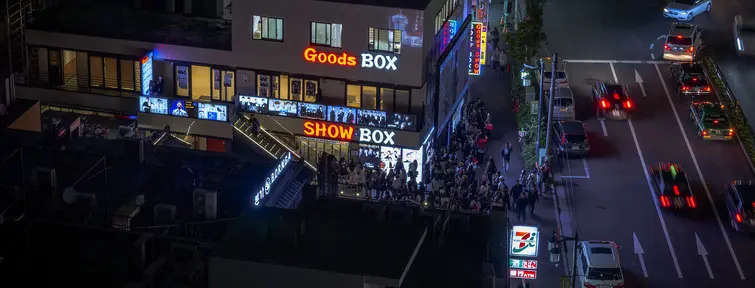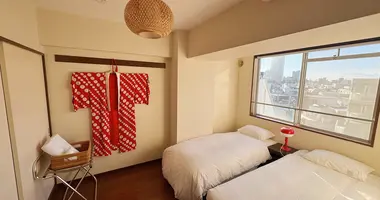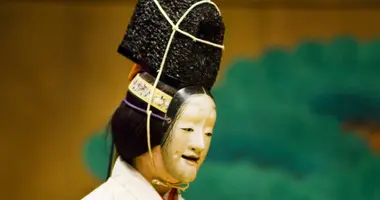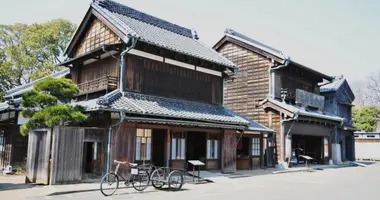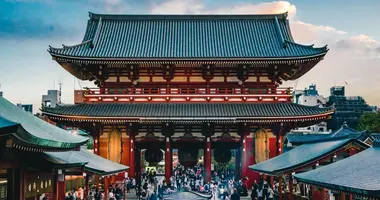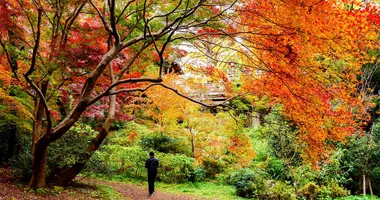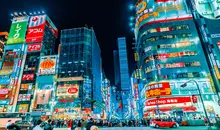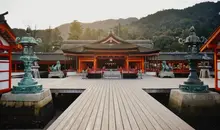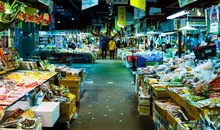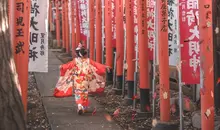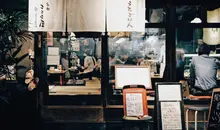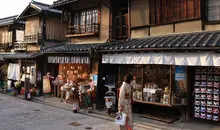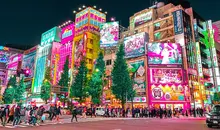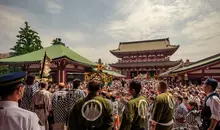Shin-Okubo: Tokyo's Korean district vibrates to the sounds of K-pop
- Published on : 09/10/2025
- by : Phoebe
- Youtube
Are you a fan of Korean pop culture? Head to Shin-Okubo! Tokyo's Koreatown is full of Korean restaurants and shops. But it is also an impressive multicultural district, where the South Korean diaspora coexists with the capital's Muslim community. A short guide by Japan Experience.
What to see, what to do?
Multicultural center
Shin-Okubo Station leads to two very distinct neighborhoods:
On the left, Okubo-dori Street leads to the residential neighborhood of Okubo, home to a large part of Tokyo's Muslim community, mainly from Southeast Asia and the Middle East. Between mosques and delicatessens, discover the flavors and traditions of these regions of the world.
On the right, Shin-Okubo-dori Street gave its name to the neighborhood. It leads to Koreatown, the temple of Korean culture in Tokyo. With its many Korean restaurants, skincare shops, and K-pop merchandise sellers, it is a delight for visitors.
A place of culture and tradition
In Shin-Okubo, Japanese traditions blend with cultures from around the world.
- Zenryuji Shin-Okubo: In the heart of the neighborhood, this small Buddhist temple offers a peaceful respite from the hustle and bustle of Koreatown.
- Seoul Mate: This language school, specializing in teaching Korean, is very popular with Japanese and foreigners who are passionate about Korean culture!
- KAI Japanese Language School: This Japanese language school welcomes students from all over the world! An ideal place for those who want to learn Japanese while discovering Tokyo life in a cosmopolitan neighborhood.
- Shinokubogogakuin Shinokubo Ko: More intimate than Seoul Mate, this Korean language school appeals for its proximity to surrounding shops.
Consider our regional passes to discover the unique cultural characteristics of different parts of Japan!
Shopping paradise
K-pop merchandise
Idol Park: A paradise for fans of Korean idols, Idol Park is the place to find official merchandise that is hard to come by in Japan. Albums, light sticks, trading cards, and autographed items—there's something for everyone!
Hallyu Plaza: Love pop culture in general? Unlike stores that focus solely on K-pop, Hallyu Plaza also offers Korean cosmetics, accessories, and lifestyle items inspired by stars from the neighboring country.
K-Star Plus: This store is renowned for the quality of its official merchandise. Photo areas also allow fans to pose with life-size cutouts of their favorite artists.
Moriyoshido Book Store: This bookstore is iconic! It is famous for its books on Korean culture, language textbooks, and K-pop magazines.
Skincare
Skin Garden: This is our editorial team's recommendation! Spread over several floors, Skin Garden stocks several popular skincare brands such as Innisfree, Etude House, and Laneige.
COSME Re:MAKE: This store specializes in Korean and Japanese cosmetics that are popular online. Have you seen a brand on Instagram that you're interested in? You'll probably find it here.
EeNA: Specializing in Korean women's fashion, this small boutique offers modern clothing inspired by Korean idols.
4You Cosme: This is THE place to go in the neighborhood! With its ultra-competitive prices, 4You Cosme is the perfect place to try new products without breaking the bank.
Fashion
Hondae Style: Inspired by Seoul's trendy Hongdae district, famous for its street fashion, this store offers Korean streetwear and vintage clothing.
SMG Collection: Specializing in Indian-inspired fashion and accessories, this boutique reflects the cultural diversity of Shin-Okubo!
Grocery stores
K-Foods: This is one of the most comprehensive Korean supermarkets in Tokyo! Kimchi, sauces, snacks, drinks, and even frozen foods imported directly from South Korea—you'll find everything at K-Foods!
Seoul Ichiba: This iconic Shin-Okubo market combines a grocery store with a food court.
Shinjuku Halal Food: specializing in halal products, this grocery store stands out for its wide selection of international products.
Music
In addition to the K-pop that spills out of stores and echoes through the streets, the neighborhood vibrates to the rhythm of its karaoke bars and concert halls.
Earthdom: this is an iconic venue on the Tokyo punk scene! Since 1985, it has attracted a loyal and passionate audience of alternative music fans, with regular concerts by local and international bands.
ENSQUARE: This venue hosts various types of performances, ranging from live concerts to exhibitions and community events.
Showbox: both a bar and a concert hall, Showbox is a great place to discover new talent in a relaxed atmosphere.
Where to eat?
Shin-Okubo, Tokyo's Korean food capital, has a lot to offer. It's home to nearly 200 restaurants and cafés, which is a lot for a neighborhood this size!
Cafés and desserts
Café On: this café has a menu full of tempting desserts. It's popular with young people and is all the rage on Instagram!
CAESAR Café: Do you dream of drinking from a cup featuring your favorite K-pop group? CAESAR Cafe has made it happen! It also offers waffles and bingsu, those (large) Korean desserts made with crushed ice and milk and topped with various toppings.
Uri Café: Are you a BTS fan? This is the place to go! From the decor to the presentation of the dishes, the café is entirely dedicated to the South Korean group!
- 2D Café: The little brother of the iconic Seoul café, Tokyo's 2D Café has an interactive decor where everything looks like it came out of a comic book!
Street food
Chicken Mochi-Gome Tangsuyuk: This restaurant specializes in tangsuyuk, meat fried in a sweet and savory sauce and served with mochi. Perfect for a quick snack!
JONGNO YATAIMURA: This small shop sells Korean street food to take away. Its specialties? Tteokbokki and kimbap (Korean spring rolls).
Ovemacaron: These takeaway macarons feature ultra-cute designs that will delight your eyes as much as your taste buds.
Interested in Japanese street food? Join our guided food tour in Osaka!
Osaka, often referred to as the kitchen of Japan, is renowned for its vibrant food culture, where eating is not just a necessity but a cultural experience. From crispy takoyaki to golden kushikatsu, savory okonomiyaki, and sweet daifuku, the city offers an irresistible mix of traditional flavors and modern street food innovations.
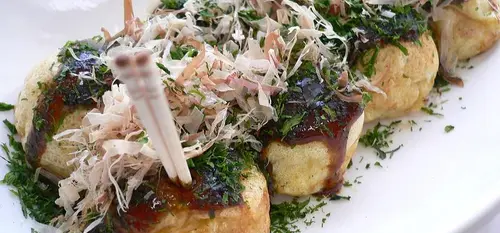
Takoyaki with bonito
Wikimedia Commons
Korean Restaurants
Hansarang: Our editorial team's recommendation! In a wood-paneled setting reminiscent of old Korean restaurants in Seoul, Hansarang offers a generous menu that allows you to discover a wide range of Korean cuisine. Its specialty? Cheese dakgalbi (chicken marinated in a spicy sauce, served with vegetables and cheese), for which it won the 2017 award for best dakgalbi in Japan!
Jinsei Sakaba Okubo: This modern izakaya combines Japanese and Korean food in a friendly atmosphere.
Shin-Okubo Kankoku Yokocho: This complex brings together several small Korean restaurants and themed bars. Ideal for discovering a variety of flavors in a lively setting!
Macchan: This little-known spot is popular for its homemade dishes.
Bacon: As its name suggests, Bacon specializes in charcuterie. This ultra-modern bar-restaurant is particularly popular with Tokyo's trendy young crowd.
Onna: Another favorite of the editorial team, thick-cut pork belly is best had with minari, a.k.a. water parsley. The fried chicken is also a must.
Where to stay?
There are no luxury hotels here. For that, it's better to go to Shinjuku, one train stop away from Shin-Okubo on the Yamanote Line. However, the neighborhood is popular for its comfortable and inexpensive accommodations. It's an attractive alternative for those who want to stay close to Tokyo's major centers without paying top dollar.
Hotel Matsunoi: This simple and functional hotel is ideal for travelers on a moderate budget. We love its modern atmosphere, with a design inspired by ryokan, traditional Japanese inns.
Rembrandt Cabin Shinjuku Shin-Okubo: Very popular with solo travelers, this capsule hotel combines comfort and high-tech technology for an optimal stay! We love its lounge on the 8th floor, which offers incredible views of the neighborhood.
Galois Hotel Shinokubo: this hotel with its sleek design will appeal to many! Special mention goes to its sento (traditional public bath), which is a great way to end the day.
Not sure where to stay in Tokyo? Take a look at our houses for rent!
Neighborhood history and pop culture
After its train station opened in 1914, Shin-Okubo remained a quiet residential neighborhood. In the aftermath of World War II, it took on the appearance of a slum as Korean workers, brought to Japan during the colonization of Korea, settled there. The first Korean restaurants appeared, and in the 1950s, the Lotte confectionery factory, founded by Korean businessman Zainichi Shin Kyuk-ho, attracted new immigrants.
It was not until the 1990s, with the growing popularity of Korean dramas in Japan, that the neighborhood became a center of South Korean popular culture. Today, K-pop and skincare are driving the local economy. Not to mention gastronomy!
On the other side of the station, towards Okubo, the neighborhood has been home to a large Muslim community since the 2000s. Known as “Islam Yokocho,” this part of the neighborhood offers a lively atmosphere with its halal markets, Indonesian and Malaysian restaurants, and small mosque.
In the media, Shin-Okubo is mainly mentioned in reports on K-pop in Japan, illustrating its role as a cultural crossroads.
Want to discover other neighborhoods in Tokyo? Subscribe to the Newsletter and follow us on Instagram.
